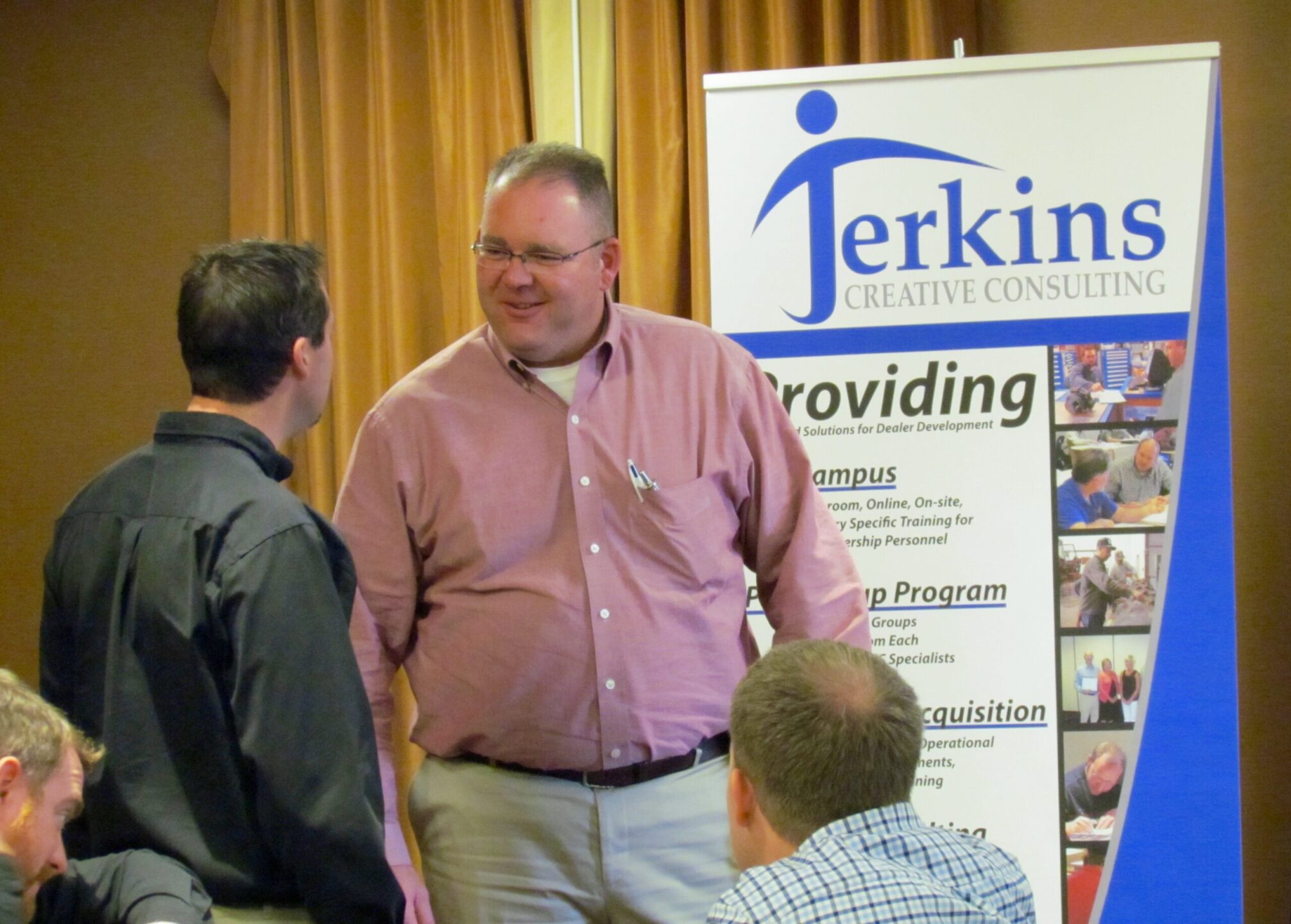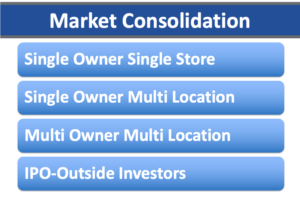
It is quite rare for a business of most any kind to be able to adequately plan succession in the ranks of their mid-management staff. So often, a manager must be replaced in quick order. In that instance, should you look for a replacement within your ranks, or should you go outside to find a suitable replacement? What are the critical skill sets that predict success? What learning pathway will the new manager need to have a reasonable chance for longevity in the position, and the potential for career growth?
Knowing your sales team.
The problem is that these decisions are often made in haste. A good parts salesperson certainly will be a good parts manager, right? It only makes sense that an outstanding technician, who knows your products and your customers, will be a natural as the next service manager. However, making this most obvious choice in many instances has led to an unfortunate professional and personal lack of fit that has hurt the dealership and an outstanding employee.
If these issues arise at the mid-level management, what is the big picture view of the dealership owner? Where is the career path of a dealer principal? Can an owner be quickly replaced? How does the owner become better educated, and identify the right resources for their personal learning pathway? What are the skill sets that predict success?
The Evolution of Owners Skill Sets
With one store doing $10M in sales, the competencies for an owner typically require them to be able to change a tire, handle bookkeeping, sell a piece of equipment and maybe even stock the soda machine. They probably do all the hiring and firing. They have to wear several hats.
Many owners of single-store operations come from a sales background. Where do they learn to sell? In my experience, these owners hardly ever take a professional selling course or become constant readers of sales-related material. They learn on the job and through trial and error. The issues this causes in the day-to-day operations is a whole other topic of discussion.
Developing a business that has $1M sales per employee with revenue from $50M to over a $1Billon requires different skill sets. The knowledge, skills, and attitude must improve to be adequately prepared for what is yet to come. As an owner expands their operation, the plan of getting personal education should grow as well.
Owners Learning Pathway During the Stages of
Consolidation
We know that with consolidation in any market, the organizations continue to grow larger.  Will all of them follow this model? The answer to that is no. Every market has movers and shakers while still supporting the smaller operations. But make no mistake, consolidation reshapes local and regional markets. I call it Shark or Bait. When owners are not proactive; they are often forced to make hard decisions before they might be ready.
Will all of them follow this model? The answer to that is no. Every market has movers and shakers while still supporting the smaller operations. But make no mistake, consolidation reshapes local and regional markets. I call it Shark or Bait. When owners are not proactive; they are often forced to make hard decisions before they might be ready.
Once the organization achieves a certain size and scale, the business becomes less about what industry you’re in and more about adapting to the best practices highlighted by successful companies. This requires the owner to have a new vision and different skill sets.
Skills vs. Knowledge
There still seems to be a lengthy discussion going on about whether or not hard skills are more or less important than soft skills. I’ve said for years that what has been commonly called soft skills are now hard skills. You can’t ignore them because they are a fundamental part of leading a company and for your teams of champions to achieve peak performance.
The key to enduring success lies within the people who deliver the day-to-day operations. They must be in harmony with the policies, procedures, and methods of operations to reach peak performance. The owner, or owner group, is still setting the pace and controlling many of the businesses’ outcomes with their decisions every day. With an operation of 30, you can meet with everyone and change a policy in almost a day. With over 300 employees, policy changes must be carefully thought out. Creating an implementation plan is critical or it could take months and months to become reality.
Business Owners Are People Too
Each business owner is unique with strengths and weaknesses, just like everyone else. Just because they own the company doesn’t automatically give them all the necessary skills to be an effective leader. Instead of trial by fire, business owners can develop a method to go through a learning pathway that will provide the foundation for success. Assessing their own competencies isn’t something that comes naturally. Commonly, outside influencers are needed to affect real change.
- Learning from your peers is an excellent method. These working sessions are normally
 financial discussions that can reveal many operational issues and hopefully the best practices to learn from. Taking these ideas back and implementing them is another story in itself. Often, an owner may be uncomfortable bringing out certain subjects or need in-depth or more customized information. That’s where one-on-one coaching becomes extremely valuable.
financial discussions that can reveal many operational issues and hopefully the best practices to learn from. Taking these ideas back and implementing them is another story in itself. Often, an owner may be uncomfortable bringing out certain subjects or need in-depth or more customized information. That’s where one-on-one coaching becomes extremely valuable. - A challenge many businesses owners experience is that sometimes the ego gets in the way or needs to get out of the way. Leading by ego is a sure way to disassemble a great organization and push people away. Success often fuels the ego, and it becomes the master. I’ve helped many leaders learn how to tame this trait and use their natural talents. Ego is a tool to use, but not to have it become our master.
- Personal education requires a pathway so you invest time learning what you need to learn. Time is precious. If you don’t have this plan, then you are “wondering” and “wandering” with your time and energy. You should know how you learn best, is it visual, auditory or kinesthetic? Knowing yourself allows for the most impact to be made and having some fun while you do it.
- There are numerous trade publications that are required reading, but you shouldn’t limit yourself to this one area. Industry-specific material should be accompanied with broader-based business material, listening to podcasts, online webinars, and attending in person events.
- There is so much material available and through various mediums that you must be careful about what information you allow into your brain. Too much of the wrong information will easily steer you away from what matters the most. Verify the sources of the material and vet the author. There is a lot of junk out there today with people making sound bites sound like in-depth knowledge.
- You can get so involved in running the business that it just doesn’t seem like you can take time away to learn. Sure, time management and effective delegation strategies are part of the solution, but there is more to the whole equation. The reality is that you can’t afford not to take the time to get formal and informal education. Knowledge is power and is the stimulus to building an enduring organization.
What is your learning pathway? Once this is prescribed, then you have focused learning that brings about the most substantive changes.
Self-Evaluation Can Lead to Happiness and a Dynamic Lifestyle
Be honest with yourself about what you’re good at. Listen to others about who you are vs. who you think you are. There are numerous “outside-in” assessments and methods to evaluate your knowledge, skills, and attitudes. “Find what you are good at and hire the rest.” There are just some skill sets that you can’t master, and knowing this is powerful. Set the ego aside so once you hire them, don’t micromanage. Get out of their way and let them do what you hired them to do.
Finally, be sure to put yourself into a position to have some fun. If what you do in the company isn’t generating that fun factor, change your role. One of the privileges of owning a business is that you can change your role to something that is a better fit for where you are in age, business acumen, and above all, the desire to live a dynamic life. Remember, there is a life after owning a business.
![]()

Hard to understand our suppliers. We have been Gehl dealers for 25 years. They have terminated us basically because we weren’t selling $500,000 per year in skid steer loaders. Even though there is no product available to sell from them, we would have to find product from other dealers. Gehl is not Gehl anymore. Now it is Manitou. A French company. We are seeing this a bunch: Japan buying this, China buying something else. Now AGCO is doing the same thing with us. We have to have every line that AGCO has to be a dealer. They asked us to be a Fendt dealer in 2000, then they stopped testing the tractors in Nebraska so we couldn’t sell them. Now they say: “Give us $100,000 and you can be a Fendt dealer again.” Handling every line. We did that at one time: two different combines, various tractor colors. Does AGCO have any clue as to how difficult that is? I don’t think so. We have had AGCO reps in our store asking us when we are going to quit…that was a few years ago. They admitted they will lose business but they don’t care. Hard to logic through that mindset. Sounds like we have to align with a “full line” dealer to keep going with AGCO. After 82 years of selling and supporting a product it comes to this. The reps will be showing up again when our turn comes and we will see what happens next.